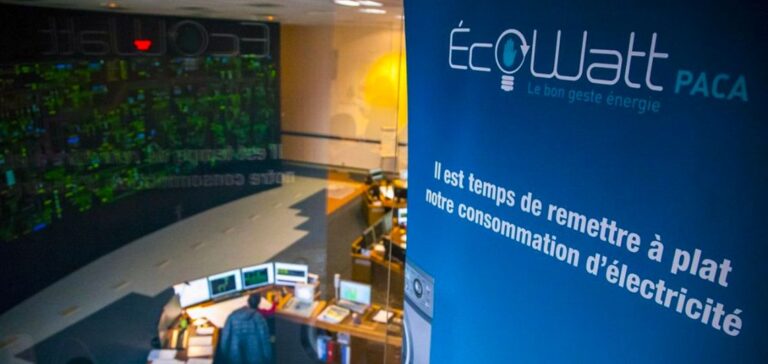In France, in order to face the energy crisis, France Televisions committed itself on Friday to raise awareness among the French on the gestures to be implemented to avoid power cuts this winter, by relaying in particular Ecowatt, the weather forecast of electricity, on its antennas.
The president of the public broadcasting group, Delphine Ernotte, and her counterpart of RTE (Réseau de transport d’électricité), manager of the high and very high voltage lines, Xavier Piechaczyk, signed on Friday a “new partnership” in this sense.
When the time comes, France Télé will display on its antennas pictograms designed as part of the Ecowatt system, which allows users to see in real time the level of electricity available in the country thanks to a signal in three colors: green (normal), orange (tense), and red (very tense, synonymous with unavoidable blackouts if nothing is done to reduce consumption).
In concrete terms, viewers will be invited to modify their practices according to the pictogram on the screen, with the red one encouraging them to moderate their consumption during the peak periods, between 8am and 12pm and between 6pm and 8pm.
If it is not necessary to turn off the TV, not the most energy-intensive, “you can for example start your washing machine at 10 pm rather than at 7 pm,” explains Delphine Ernotte to AFP.
You can also postpone the cooking of your “zucchini gratin” from 7:00 pm to 7:45 pm, says Xavier Piechaczyk, reminding that heating and cooking are very energy consuming.
The public of France Télé, “4 out of 5 French people every week”, will be made aware of these actions, especially during news programs or “weather and climate” bulletins, according to Delphine Ernotte, who claims a public service mission.
It is not a question of “putting France at a standstill”, only of “being careful when it is necessary”, insists Xavier Piechaczyk, who hopes to “save at least 5% of electricity in the evening at 7 pm”.
For France Télé, this initiative is part of a larger “environmental shift” to respond to the “climate emergency”, including the creation of a “climate team” among journalists or the “regular relocation” of the 13H of France 2 in places hit by the crisis …
The group is also committed to various internal energy-saving measures, such as turning off the lights in all its buildings after 9:30 p.m., and to working with production companies that meet certain criteria, particularly with regard to their carbon footprint.





















